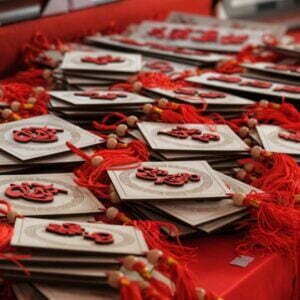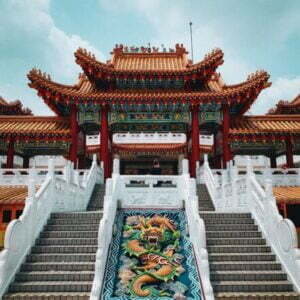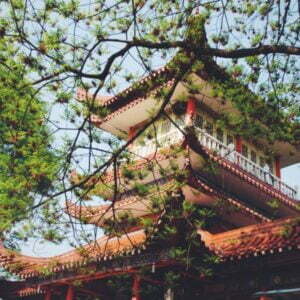Suzhou University is located in Suzhou, a historical and cultural city known as the "paradise on earth". It is the first batch of universities listed in the "211 Project" and "2011 Plan" of the country. It is a "double first-class" construction jointly established by the Ministry of Education and the People's Government of Jiangsu Province. Universities, the National Defense Science and Technology Industry Bureau, and the Jiangsu Provincial People's Government jointly build colleges and universities, which are key comprehensive universities in Jiangsu Province. Formerly known as Soochow University (Soochow University, founded in 1900), Soochow University pioneered modern higher education and blended the brilliance of Chinese and Western cultures. It is the earliest university in China to adopt a modern university discipline system. In the history of higher education in China, Soochow University was the first university to offer postgraduate education and award a master's degree, and first to launch a law (Anglo-American law) professional education. It is also the first university to establish a journal. In 1952, the colleges and universities in Mainland China were reorganized. The School of Arts and Sciences of Soochow University, the School of Culture and Education of Sunan, and the Department of Mathematics and Science of Jiangnan University merged to form Sunan Teachers College, which was renamed Jiangsu Teachers College in the same year. In 1982, the school was renamed Soochow University. Since then, Suzhou Sericulture College (1995), Suzhou Silk Institute of Technology (1997), and Suzhou Medical College (2000) have successively merged into Suzhou University. From the glorious stars of the Republic of China to the pioneering and innovative era of the Republic; from the adherence to the context of teacher education to the strategic transformation and return of comprehensive universities; from the leap-forward development of multi-school mergers to striving for first-class remodeling glory, Suzhou The university has left a strong mark in the history of Chinese higher education.
For more than a century, generations of Soviets have always adhered to the school motto of “Keeping the heavens and earth upright, and the ancients, the ancients and the present,” adhering to academic supremacy and applying what they have learned, advocating freedom, openness, inclusiveness, and the pursuit of excellence. We are committed to cultivating model citizens who have both a “spirit of freedom, an ability to excel, an independent personality, and the responsibility of society”. In the long-term school running process, we have sent more than 500,000 professionals of various types, including Xu Dexuan, Zhou Gucheng, Fei Xiaotong, Lei Jieqiong, Sun Qimeng, Zhao Puchu, Qian Weichang, Dong Yinchu, Li Zhengdao, Ni Zheng Ri'ao (yù), Zheng Pijiang, Yang Tieliang, Cha Liangyi (Jin Yong) and a large number of elites and celebrities; More than 30 academicians from the two academies, such as Tan Jiayi, Chen Ziyuan, Yu Mingfang, Song Daxiang, and Zhan Qimin, have made important contributions to national construction and social development.
Suzhou University currently has twelve university disciplines including philosophy, economics, law, education, literature, history, science, engineering, agriculture, medicine, management, and art. The school has 30 colleges (departments), with 27,615 full-time undergraduates, 10,471 full-time masters, 2,689 part-time masters, 711 on-the-job masters, 1,859 full-time doctoral students, and 3,271 foreign students. The school currently has 131 undergraduate majors, 50 first-level subject masters, 24 professional degree masters, 28 first-level doctorate points, 1 professional degree doctoral point, and 30 post-doctoral mobile stations. The school currently has one national first-class discipline, four national key disciplines, 20 superior disciplines in Jiangsu universities, and nine key disciplines in Jiangsu Province during the 13th Five-Year Plan period. As of now, there are 12 schools in chemistry, physics, materials science, clinical medicine, engineering, pharmacy and toxicology, biology and biochemistry, neuroscience and behavioral science, molecular biology and genetics, immunology, mathematics, and computer science. Disciplines entered the top 1% of the Global Basic Science Indicators (ESI), and chemistry and materials science entered the top 1 ‰ of the Global Basic Science Indicators (ESI).
The school has 2 national talent training bases, 1 national innovative talent training demonstration base, 3 national experimental teaching demonstration centers, 1 national virtual simulation experimental teaching demonstration center, 2 national virtual simulation experimental teaching projects, 2 Innovative experimental areas for national talent training models, and a national off-campus practice teaching base for university students. 1 National 2011 Collaborative Innovation Center (lead unit), 1 Key Research Base of Humanities and Social Sciences of the Ministry of Education, 1 Provincial and Ministry of National Key Laboratory, 1 National Engineering Laboratory, 2 National Local Joint Engineering Laboratories, 2 national-level international cooperation joint research centers, 3 national-level public service platforms, 1 national university science park, 1 national key laboratory cultivation base, 1 Jiangsu provincial university national key laboratory cultivation and construction site, 4 Jiangsu University Collaborative Innovation Center, 21 provincial and ministerial level philosophical research centers, 30 provincial and ministerial level key laboratories, 11 provincial and ministerial level public service platforms, and 4 provincial and ministerial level engineering centers.
At present, there are 5,221 faculty members and 2,738 people with deputy senior titles and above, including 1 Nobel Prize winner, 8 academicians of the Chinese Academy of Sciences and the Chinese Academy of Engineering, 5 academicians from developed countries, and 29 national outstanding youth funds. There are 38 winners of the National Excellent Youth Fund, one outstanding person in the "Ten Thousand Talents Plan", 10 leading talents in science and technology innovation in the "Ten Thousand Talents Plan", three outstanding young talents in the "Ten Thousand Talents Plan", and a member of the Disciplinary Evaluation Group of the Degree Evaluation Committee of the State Council Six people, a relatively strong and reasonable structure of teachers has been initially formed.









